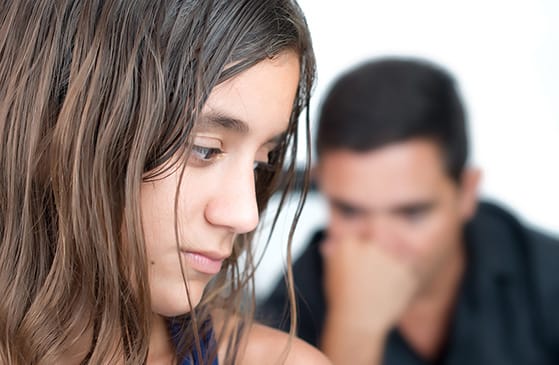Jan 25, 2018
A Child’s View of Infidelity
Children and Divorce
In 2012, one quarter of adults under the age of forty-five in the U.S. were children of divorce. In many cases, infidelity was a primary factor in the divorce. That betrayal has wide-ranging consequences for their children.
How do Children of Cheaters Feel?
Ana Nogales, Ph.D., author of Parents Who Cheat: How Children and Adults Are Affected When Their Parents Are Unfaithful, coined the term “children of infidelity” to identify children of any age whose parent or parents engage in one or more acts of infidelity. More than 800 adult children whose parents were unfaithful responded to Nogales’s online Parents Who Cheat survey with the following results:
- 88.4% felt angry toward the cheating parent.
- 62.5% felt ashamed or embarrassed.
- 80.2% felt that it influenced their attitudes toward love and relationships.
- 70.5% said their ability to trust others had been affected.
- 83% stated that they feel people regularly lie.
- 86% reported they still believe in monogamy.
What are the Effects on the Children?
Nogales found that children of infidelity, regardless of their age, shared these common reactions to their parent’s infidelity:
- Difficulty trusting that someone they love will not lie to them, reject them, or abandon them.
- Shame that the infidelity is a black mark on the family and guilt if the child knew about the affair before the betrayed parent.
- Confusion regarding love and marriage. What is real and what is an illusion?
- Anger and ambivalence toward the cheating parent. They are torn between feelings of anger and yearning for that parent’s love.
- Resentment toward the betrayed parent for not preventing the infidelity and for compromised parenting and/or needing the child’s caretaking during the infidelity drama.
- Acting out in an effort to avoid difficult emotions, including promiscuity, intimacy problems, and sexual addiction can occur.
The overall message that children hear is, “I love you, but I love myself more.” The cheating parent justifies and lies about their behavior, denies the impact on their children, and acts in their own best interest. The betrayed parent is so distraught and shattered that their ability to parent suffers. And the children are often left to figure things out on their own.
Helping Children Heal from Parent’s Infidelity
Whether the child is an adult or a minor, it will be a difficult path to healing from this blow to their family. Some guidelines to follow include:
- Deal With the Anger. Anger is a normal human reaction and should be expressed in a healthy manner. Often, a counselor can offer the objectivity that family members and friends cannot. Find an experienced professional to help children deal with their anger, fear, hurt and sadness.
- Set Good Boundaries with Both Parents. It is not the child’s responsibility, regardless of their age, to provide parental emotional support to their own parent. For older teens and adult children, that means saying, “I care about you and love you, but I cannot talk with you about my other parent. Do you have someone else to get support from?”
- Regain Trust. People have a basic need to have security and trust. It is important to realize that we don’t have to trust everyone or mistrust everyone we encounter. Whether the infidelity leads to a divorce or reconciliation, that parent must work to repair the damage done to the children, so they can choose and sustain healthy relationships in the future.By Deirdre Hally Shaffer, MSW, LCSW
©2018 Alpha Center for Divorce Mediation
